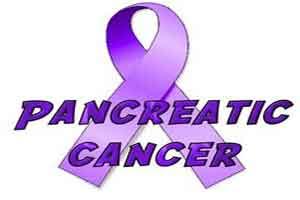- Home
- Editorial
- News
- Practice Guidelines
- Anesthesiology Guidelines
- Cancer Guidelines
- Cardiac Sciences Guidelines
- Critical Care Guidelines
- Dentistry Guidelines
- Dermatology Guidelines
- Diabetes and Endo Guidelines
- Diagnostics Guidelines
- ENT Guidelines
- Featured Practice Guidelines
- Gastroenterology Guidelines
- Geriatrics Guidelines
- Medicine Guidelines
- Nephrology Guidelines
- Neurosciences Guidelines
- Obs and Gynae Guidelines
- Ophthalmology Guidelines
- Orthopaedics Guidelines
- Paediatrics Guidelines
- Psychiatry Guidelines
- Pulmonology Guidelines
- Radiology Guidelines
- Surgery Guidelines
- Urology Guidelines
High-dose radiotherapy can add years to pancreatic cancer patient's life

Washington : Patients with early stage pancreatic cancer could be given longer to live if they receive radiotherapy at a high enough dose, according to a recent research.
The study, presented at the ESTRO 36 conference, retrospectively analysed 514 patients from Europe and the US who were diagnosed when their tumours had not spread and could be removed by surgery. Following surgery, all the patients had been treated with chemotherapy combined with radiotherapy. Patients were followed for an average of 20 months.
The researchers divided the patients up into four groups according the dose of radiation they received. The results suggest that the higher the dose, the longer the patient lived. Radiation dose is measured in units called grays, with one gray (Gy) equivalent to absorbing one joule of radiation energy per kilogram of body tissue. Patients who received a dose less than 45 Gy had an average survival of 13 months, patients with a dose in the range of 45 to less than 50 Gy had an average survival of 21 months. For the next group with a dose range of 50 to less than 55 Gy, average survival was 22 months and for the group with the highest doses of 55 Gy or more, average survival was 28 months.
The research was presented by Francesco Cellini, radiation oncologist at the Fondazione Policlinico Universitario Agostino Gemelli and the universita cattolica del sacro cuore, rome, Italy.
He told the conference that the survival rates for pancreatic cancer remain stubbornly low, with most patients given months rather than years to live, adding, "We have found that the higher the dose, the longer the patient is likely to survive. This may indicate that the doses were simply not high enough in previous research."
He further noted that the pattern of increasing survival in this study suggested that tumours of the pancreas are not resistant to radiation; they just need to be tackled with an adequate dose.
Cellini continued that this study suggests radiotherapy should be considered for patients with early stage pancreatic cancer. "It may also be worthwhile to investigate whether current radiotherapy techniques could also bring survival benefits to patients with more advanced tumours."

Disclaimer: This site is primarily intended for healthcare professionals. Any content/information on this website does not replace the advice of medical and/or health professionals and should not be construed as medical/diagnostic advice/endorsement or prescription. Use of this site is subject to our terms of use, privacy policy, advertisement policy. © 2020 Minerva Medical Treatment Pvt Ltd